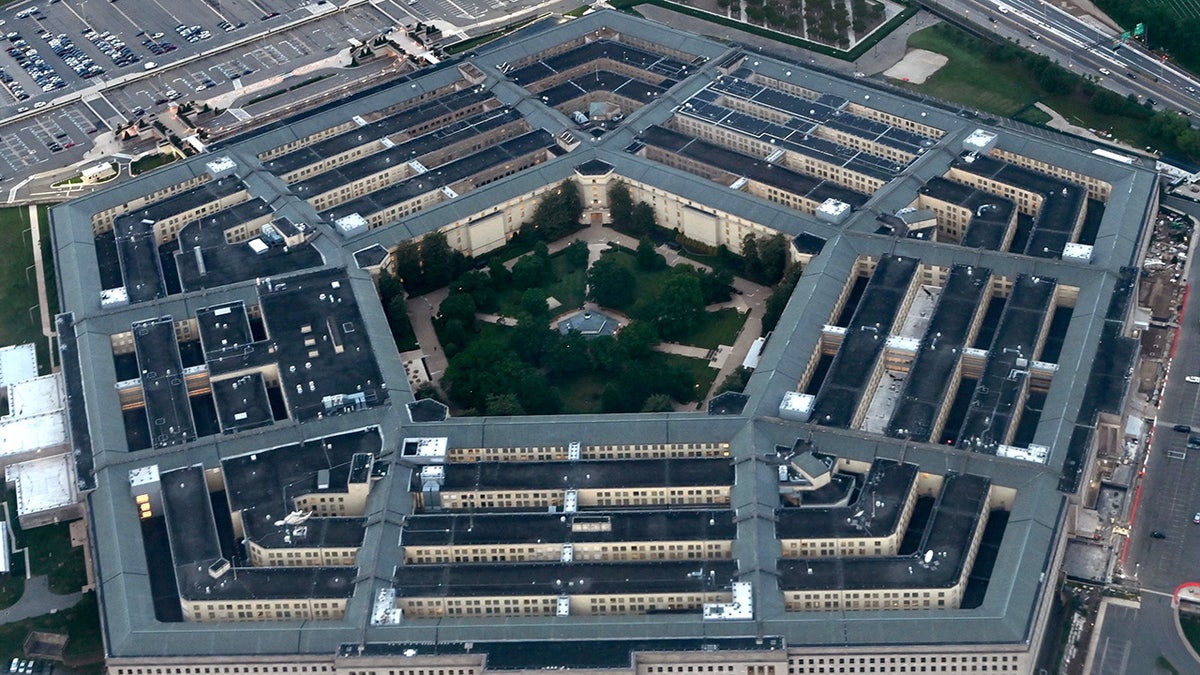The Importance of Artificial Intelligence in National Defense
The 2024 National Defense Authorization Act (NDAA) has placed a significant emphasis on the continued development of artificial intelligence (AI) for the military. This investment in AI technology could prove pivotal in the ongoing competition with China, as it recognizes the threat posed by China in both physical and cognitive conflicts.
Christopher Alexander, the chief analytics officer of Pioneer Development Group, stated that AI and its protection are crucial elements in the strategic calculus against China. The NDAA, which was signed into law by President Biden last month, outlines the yearly military spending plan.

President Biden signed the Pentagon spending bill into law last month. (Joe Raedle/Getty Images)
The 2024 NDAA places a strong emphasis on the importance of AI development for national defense. One significant provision in the bill is the establishment of a new Chief Digital and Artificial Intelligence Officer Governing Council for the military. This council will oversee and ensure responsible development and usage of AI technology for military purposes.
Experts view this new level of oversight as a promising development, as the continued development of AI presents potential unknown dangers. Jon Schweppe, policy director at American Principles Project, commended Congress for taking the AI revolution seriously and creating a new role at the Pentagon responsible for oversight. However, he also emphasized the need for additional measures to prevent potential issues with uncontrolled AI development.
Ziven Havens, the policy director of the Bull Moose Project, echoed similar sentiments, stating that this year’s NDAA includes 149 mentions of artificial intelligence as the U.S. strives to balance its role as an AI leader with safety concerns.
In addition to creating new oversight mechanisms, the 2024 NDAA outlines various new AI initiatives for the Pentagon. One such initiative is a requirement for the Secretary of Defense to develop a strategic plan for AI development and utilization in defense operations.

The 2024 NDAA lays out new AI initiatives for the Pentagon, including a requirement for a strategic plan for developing and using AI for defense. (Daniel Slim/AFP via Getty Images)
However, as the focus on AI intensifies, concerns about its safety have also grown. President Biden has taken executive action to address these concerns in 2023. Samuel Mangold-Lenett, a staff editor at The Federalist, explained that the government is in a delicate situation with AI. While it cannot afford to slow down its development, especially in defense, it must also ensure that the necessary precautions are in place to prevent potential issues. Questions remain regarding what the current administration considers ethical use and the risks associated with data-informed diplomacy. It is crucial to strike a balance between taking advantage of AI’s defense capabilities and addressing potential ethical concerns.
The 2024 NDAA acknowledges these concerns and emphasizes the responsible development of AI. However, it also affirms the U.S.’s commitment to advancing military AI capabilities, including the pursuit of autonomous weapons that could shift the dynamics of future conflicts with countries like China.
One notable example of such technology is the XQ-58A Valkyrie experimental aircraft, which has been in development since 2016. This stealth platform can be operated by AI and is intended to provide a cost-effective weapon that minimizes human pilot casualties while protecting manned aircraft during flight.

The XQ-58A Valkyrie demonstrates the separation of the ALTIUS-600 small unmanned aircraft system in a test at the U.S. Army Yuma Proving Ground in Arizona, March 26, 2021. (Courtesy: U.S. Air Force)
According to Alexander, the U.S. must continue developing such systems to maintain its military advantage over China. Autonomous vehicles, like inexpensive drones, can provide near-peer effectiveness against more expensive manned platforms, giving the U.S. an asymmetric advantage.
With the 2024 NDAA’s focus on AI development and oversight, it is clear that the U.S. is committed to leveraging AI technology for national defense. The responsible development and usage of AI will be crucial in maintaining a competitive edge and addressing potential risks and ethical concerns.
Read this article for free!
Plus get unlimited access to thousands of articles, videos and more with your free account!
Please enter a valid email address.





















